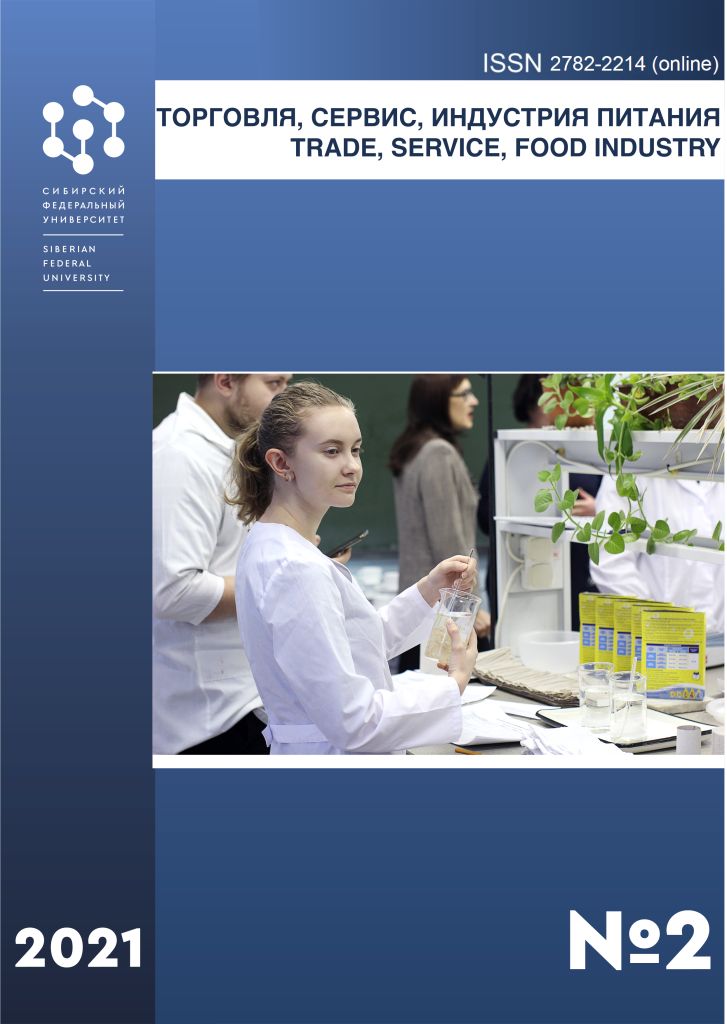Krasnoyarsk, Krasnoyarsk, Russian Federation
Russian Federation
UDC 33
CSCSTI 06.39
The development of crisis situations on a global scale and their deepening actualizes the problems of sustainable development of organizations operating in a competitive environment. The transformational changes taking place in the Russian economy today put forward new requirements for the theoretical and methodological support of the activities of commercial firms. This is especially true for large network enterprises, including retail businesses, which have a significant scale of activity and complex network interactions. In the works of both foreign and Russian scientists, various aspects of network business are considered, mechanisms and tools for strategic sustainability are proposed. However, in a turbulent environment, there is a constant search for new forms of network interaction and appropriate tools for effective activity. The purpose of this study is to develop a mechanism for managing the strategic stability of a network trade organization based on the formation of an optimal set of tools that provide the necessary level of each type of enterprise stability. The article considers the concept of "tool", offers modern tools for ensuring strategic stability in the context of various types of sustainability. This paper reveals the content of the most relevant modern tools of strategic sustainability in the context of digitalization of the network organization. The authors have developed a mechanism for strategic stability of a network trade organization, including the principles and methods of management, which allows optimizing the composition of stability tools depending on the factors of the external and internal environment. On the example of a specific organization, a list of strategic sustainability tools was formed on the basis of a comprehensive analysis and assessment of the level of each type of sustainability. The proposed methodology allows you to take into account the specifics of network trade organizations and achieve your goals more effectively using modern management tools.
tool, strategic sustainability, network trade organization, mechanism, strategy
1. Alekseev, S. B. (2015). Formation and choice of strategic goals of a commercial enterprise on the basis of its external strategic potential. Trade and economic journal. 2(4). 285-302.
2. Antonova, E. A. (2014). Management of sustainable development of the service sector using market instruments (on the example of trade enterprises of St. Petersburg). Saint-Petersburg. 206 p.
3. Berg van den, G. (2017). Key management models. 77 models that every manager should know. Moscow. Laboratory of Knowledge. 400 p.
4. Gerasimova, E. A. (2016) Strategic stability of entrepreneurial structures on the basis of network interaction. Problems of modern Economy. 2 (58). 114-117.
5. Gilmullina, R. M. (2016). Evaluation of the strategic stability of the organization. Molodezh i nauka. 6. 82-87.
6. Gorbachev, V. A. (2019). Strategy of management of financial stability of network trading companies. Science and education: economy and economy; entrepreneurship; law and management. 1 (104), 33-36.
7. Gorodnov, A. G. (2006). Development of retail trade networks on the basis of reengineering of business processes. Nizhny Novgorod. 276 p.
8. Dudin, M. N., Lyasnikov, N. V. (2009). Ensuring the strategic stability of entrepreneurial structures in the context of the economic crisis. Guide to the entrepreneur: scientific and practical. 82-83.
9. Znatnov, E. A. (2007). Strategy of development of network trade. Moscow. 160 p.
10. Kataeva, N. N. (2015). Types of strategies for the development of a commercial enterprise. Science, Technology and Education. 4 (10). 13-16.
11. Krymov, S. M., Kolgan, M. V. (2017) Features of modern approaches to the organization of the system of strategic development of trade enterprises. Innovative economy: prospects for development and improvement. 3 (21). 43-47.
12. Kulagina, E. V. (2008). Tools and methods that ensure the stability of the enterprise. Journal of scientific publications of postgraduates and doctoral students. URRL: http://jurnal.org/articles/2008/ekon18.html
13. Mamsirova, A. A. (2017). Network format as a tool for ensuring the stability of trade business in an unstable external environment. In: Problems and prospects of socio-economic development of the regions of the South of Russia. Collection of scientific papers. 91-93.
14. Mirza, D. D., Mirza, Z. M. (2016). Features of adaptation of the activities of network organizations of the trade sphere to the changing conditions of the external environment. Bulletin of the Adygeya State University. Series 5. Economics. 3 (185). 149-155
15. Mikheev, G. V., Shchepakin, M. B. (2013). Directions of development of strategic alternatives for enterprises of network retail trade. Economics, Sociology and Law. 12. 45-50.
16. Sabanchiev, N. A. (2009). Theoretical and methodological foundations of organizational support for strategic sustainability. Moscow. 165 p.
17. Sanzhina, O. P., Imideeva, I. V. (2011). Features of the use of management tools in the management of industrial enterprises of the Republic of Buryatia. Russian entrepreneurship. 12(4). 85-88.
18. Semin, A. A. (2016). Sustainability of network business development and its social responsibility in the conditions of external instability. Bulletin of the Rostov State University of Economics (RINH). 2. 65.
19. Ten, A.V. (2010). Tools for managing the sustainability of the functioning of a commercial organization. Bulletin of the Chelyabinsk State University. 27 (208). 96-97.
20. Khasis, L. A. (2006). System transformations of the trade sector of the economy on the basis of network structures: organizational and economic aspect. Moscow. 242 p.
21. Chaplina, A. N., Gerasimova, E. A. (2021). Methodology of analysis and evaluation of the level of strategic stability of network trade organizations. Problems of modern economy. 2.
22. Yashin, N. S., Grigoryan, E. S. (2015). Methodology of strategic stability of the enterprise. Bulletin of the Saratov State Socio-Economic University. 1 (55). 18-22.
23. Future-Fit. Future-Fit Foundation. URRL: https://futurefitbusiness.org/ (Accessed: 10.05.2020)
24. S-CORE. International Society of Sustainable Development Professionals. URRL: http://www.sustainability-core.com/home (Accessed: 10.05.2020)
25. Todorut, A. V. (2012). Sustainable Development of Organizations through Total Quality Management. Procedia - Social and Behavioral Sciences. 62. 927-931.








